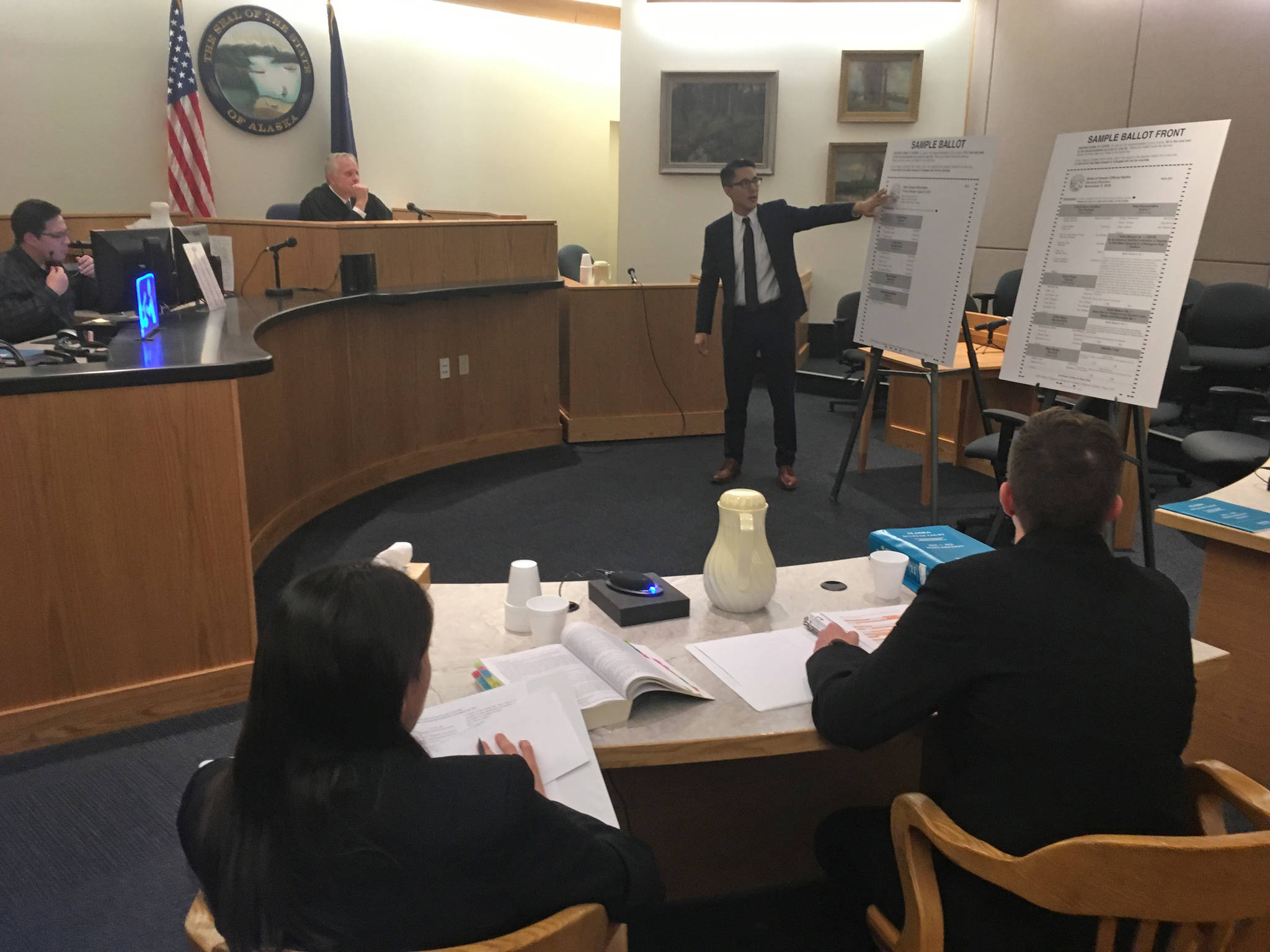For state attorney Margaret Paton-Walsh, it’s a Jenga tower waiting to collapse. For Alaska Democratic Party attorney Jon Choate, it’s the solemn decision of an independent organization.
On Thursday afternoon, Juneau Superior Court Judge Philip Pallenberg heard an hour of arguments in a case that seeks to determine whether the Alaska Democratic Party can put independents on its primary election ballot.
The state says that’s against the law. Choate, arguing on behalf of the Democratic Party, says it’s the party’s right to associate with independents if it wants to.
Pallenberg is expected to issue a summary judgment as soon as next week, and the losing side is expected to appeal to the Alaska Supreme Court regardless of the verdict.
Speaking by phone after the technical discussion, Choate said his argument boils down to a constitutional one.
“Our position is that as a matter of law under the Alaska Constitution, that political parties have an associational right, a right to associate,” he said.
In other words, they can pick an independent if they want to.
Last year, the party changed its internal rules to allow independents onto the party’s ballot. If two Democrats and an independent appear on the Democratic primary ballot, but the independent wins, the independent would be the party’s candidate in the general election.
Paton-Walsh argues that allowing this practice could endanger Alaska’s entire electoral system.
“If you think of our election system as a Jenga tower, the party membership … is one of those low bricks. You pull that out, and the whole thing can collapse,” she said.
Anyone who reads Title 15 of Alaska law (which deals with elections) will find abundant references to rights and privileges given to recognized political parties.
Under Alaska law, a political party is any group that gets at least 3 percent of the vote in a general election for governor, U.S. Senate, or U.S. House.
Paton-Walsh argues that if parties put forward independents instead of people registered with a specific political party, the state’s political party system could collapse or at the very least become unworkable.
“I think you’ll find that those doomsday scenarios are not going to happen,” Choate told Pallenberg.
He said he believes the number of independents running on a party ticket would be extremely small.
“There’s now this conflict between the state’s requirement and the party’s own requirements as to who can be a candidate, and that’s what we’re trying to resolve,” he said after the hearing.
• Contact reporter James Brooks at james.k.brooks@juneauempire.com or call 523-2258.

